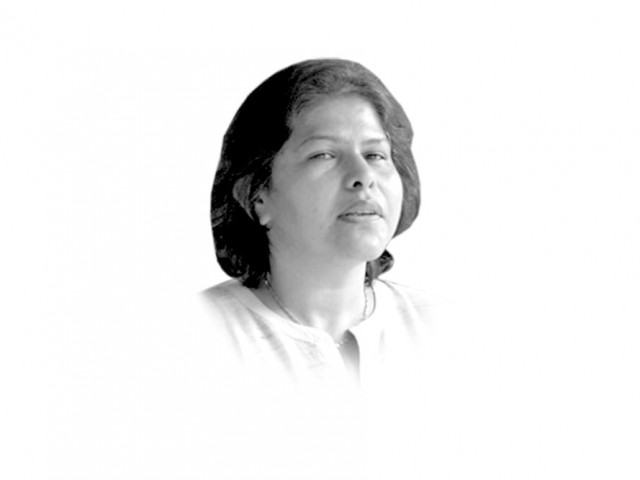A case for rethinking justice
Malik Ishaq, SSP can be prosecuted if judicial system had access to intelligence information while protecting sources.

Given the conditions of policing in this country we may never be able to plug the gaps as far as terrorism is concerned. Just imagine the burden on the police in every part of the country. Our rising population, coupled with an increase in poverty and crime, all makes policing a very tough job. The additional burden of providing security to VIPs, and keeping a watch over those in the Fourth Schedule is far too much to ask of a police official. Under the circumstances, the only available option is to listen to the heads of the banned outfits when they promise that if allowed to operate on their own they will ensure that there are no cases of violence in their area. Furthermore, to ensure the good-heartedness of the state, those dealing with these outfits can then help in the expansion of the jihadi infrastructure, again with the expectation that nothing untoward will happen. The formula works until there is some difference of opinion and the jihadis need to feed their followers with real action. Perhaps, this is when the religious and sectarian minorities come of good use to the state as these could be conveniently sacrificed for buying some time from the jihadi friends.
The bottom line is that such collusion results in forcing the law enforcers not to collect appropriate evidence against people who in the past have been involved in nefarious activities, who have trained in Afghanistan and Kashmir, and who continue to be part of these militant outfits. Recently, a senior police office responsible for watching over the LeJ’s Malik Ishaq said that keeping an eye on the jihadi leader wasn’t a problem since he was doing it with the help of couple of intelligence informants which is all that he needed for the job. Clearly, his bosses had not informed him of Malik Ishaq’s capacity to run operations from his jail cell. In any case, the officer was of the view that Ishaq had become pro-Pakistan and was needed to rope in the unfriendly portions of the LeJ. Sadly, this is one of the oldest stories told to justify the continuation of one jihadi gang or the other. Not to mention the fact that it would perhaps take centuries to disabuse the LeJ’s head honcho of his sectarian bias.
But let’s suppose the intelligence officials did come up with some credible and incriminating evidence. The problem then would be getting the information to be accepted in a court of law. This is a huge issue that is faced by the legal system in general in that it does not, by and large, allow for admissibility of intelligence information. Likewise, intelligence officials are wary of presenting such information for fear of compromising their sources. So, here is a situation where even if the court were less lenient towards the jihadis it would still not be possible to pass a judgment using the argument that was used, for instance, in the Afzal Guru case in India where the superior court maintained the death sentence on the basis of its concern for public sentiment. This certainly cannot be done every day and is also a principle with a larger legal connotation that every judge may not want to consider, especially if the judiciary has certain ideological leanings. There is also the issue of judges being far too conservative to think ‘outside the box’ in entertaining evidence.
What is needed instead is a system by which the court is able to look through the intelligence information in the judges’ chamber in order to protect the intelligence source.
For those thinking of beefing-up counter-terrorism, bringing the higher judiciary on board to make the necessary changes in the system of adjudication is extremely important.
Published in The Express Tribune, October 16th, 2011.
















COMMENTS
Comments are moderated and generally will be posted if they are on-topic and not abusive.
For more information, please see our Comments FAQ